Two weeks ago, on August 30th 2023, a coup took place in the African Nation of Gabon.
Home to 2.5 million people and one of the least dense nation’s in Africa, Gabon is a former French colony. The nation, very much a petrol-state, as 80% of its exports are oil, is actually one of the richest per-capita in Africa. However, thanks to corruption by officials, that revenue rarely trickles down to the average resident.
Despite decades of elections, Gabon has never really been a democracy. While they had elections, the vote counting was rigged. In August, Gabon was holding another election, with President Ali Bongo Ondimba expected to to easily win. Ondimba had been President since 2009 after the death of his father, Omar Bongo. Similar to Ondimba, Bongo served as President with rigged elections; holding the post since 1967. The longtime corrupt leaders made deals with Western powers, especially the French government, to maintain lavish lifestyles while their citizens lived in poverty.
The coup, carried out by several military officials and led by Brice Oligui Nguema, ends a long family dynasty in the region. Such coups are rarely a positive, and while the new leaders pledge reforms - I will remain skeptical that such talk is put into action. Many of the coup leaders were high-up officials in the Government. This was not a popular revolution, it was an internal change in power.
That said, the Gabon coup is very different from the one that took place in late July in Niger. I wrote about that coup below.
Issue #119: Russia's Coup in Niger
Over the last 48 hours, a tragic situation in Niger has developed. President Mohamed Bazoum has been depose in a coup led by security personal and now backed by the military. The move comes just a few years after the nation held its first successful democratic transfer of power since independence.
In the case of Niger, the true Democratically-elected President, Mohamad Bazoum, was the one ousted. His ousting at the hands of military leaders who had ties to the Russian-backed Wagner mercenary group, came amid accusations he had not done enough on security concerns. As I delve into with the article, that pretext is a lie to push Russia influence into western Africa.
In the wake of the Gabon coup, however, I wanted to take a look at one of their “elections” and how the fraud can stand out in some of these shams.
Gabon’s Election Fraud
As stated before, Gabon has been holding elections since the 1990s. However, none of these have been considered fair. Opposition has been repressed at times, but the favorite method has been rigging the vote. Omar Bongo never got under 65% of the vote in any of his races. It was not until his son took over in 2009 that closer results emerged.
The 2009 election was the first time Ali Bongo Ondimba faced the voters. He secured 41% of the vote, while his opponents trailed with 26% and 25% respectively. No runoff was required, and Ondimba was sworn in as President. However, this came after delays in the returns and lax data to verify the results. Protests erupted and Gabon security forces, and French soldiers, clashed with the opposition forces.
Data and information from these elections can be hard to come by, which further arouses suspicion. The 2016 Presidential Election, however, offers a real glimpse into the rigging of the vote. In that election, Ondimba faced Jean Ping, who was a former Minster of Foreign Affairs. Ping represented a major threat to Ondimba, and as returns began to come in, the President was way down in the vote.
However, as the provinces began to report, the province of Haut-Ogooue gave the President a stunning 95% of the vote. The province netted 65,000 votes, allowing Ondimba to win by just over 5,000 ballots.
Now I know what you are thinking. Must be fraud, right? Well it is important to remember that in many African elections, such landslides are common thanks to ethnic-block voting. The province was the home base of the Bongo family, after all. For some good example’s of ethnic voting, see my 2022 article on Kenya’s successful election.
Issue #70: Kenya's 2022 Presidential Election and avoiding Ethnic Violence
Last month, voters in Kenya went to the polls to vote for President, parliament and county officials. This east African democracy is home to a large number of ethnic groups and has struggled with ethnic-block voting in previous elections. However, while Kenya has struggled at times, especially with racial violence following the 2007 election, the nati…
So does that mean the Gabon elections were on the up and up?
No, of course not. How do we know? Because that very same province had a completely unbelievable 99% turnout!
The turnout, coupled with the high margin, points to obvious fraud. The results clearly represent a last-minute effort by the regime to stuff ballots and secure a narrow victory. The tactic worked, and while protests and riots emerged, they were eventually suppressed.
Heading into 2023, it was widely believed the latest poll would be rigged. I never intended to follow the results for this reason. Indeed, as election day came, the signs of rigging were clear. The internet was cut off, and reports of ballot box manipulation was widespread. Just as the results were announced, giving Ali Bongo Ondimba a completely unrealistic 65% of the vote, the coup was announced.
Now the family dynasty is likely over. However, I sadly do not expect true elections to come to Gabon anytime soon.
Other Examples of Rigged Votes
Ballot manipulation is hardly new in elections. In Africa, several races have had this taint, but some were reversed. For example, the nation of Malawi saw its 2019 vote overturned when evidence of ballot tampering emerged. A re-run of the race was ordered, which then saw opposition groups unite and the ruling party ousted for the first time in the nation’s history. I wrote about that saga here.
However, not all nations have such luck in thwarting fraud. In Uganda, longtime incumbent Yoweri Museveni won re-election in a clearly rigged vote; taking a 20 point win. However, in efforts to dispel rigging claims, the election commission of Uganda made a major mistake. As activists on the ground began publishing polling sheets that showed the results, the Election Commission called those sheets fake and published their official results. They posted these directly to twitter, which you can see here.
One of of the polling sheets in question showed that Museveni has 198 votes in a precinct and challenger Bob Wine with 84; with other candidates getting small totals. However, the “genuine” results published by the commission said Wine only had 8 votes.
Now this is one precinct, and either way shows a Museveni win. However, this "genuine” results from the commission is clearly doctored. For one, the “8” for Wine does not have a 0 in front of it, as all other under-10 digits do. Also, most importantly, the total for the precinct is 300 in both the results published by activists and by the commission. However, if Wine only got 8 votes, the total should have been 224 votes. The “genuine” document leaves it at 300, leaving a “missing” 74 ballots - aka the diff between 8 and 84.
This was roundly mocked on twitter. It also surely means many if not most ballot papers were rigged to suppress votes for the challenger.
Meanwhile, just earlier this year, Sierra Leone went to the polls. I wrote about the backstory to the Sierra Leone election, which you can read here.
Issue #115: Sierra Leone Goes to the Polls
Today, June 24th, voters in the west-African nation of Sierra Leone go to the polls to elect a President and parliament. In a country once-marred by dictatorship and civil war, the nation has seen its democracy hold steady for the last twenty years. This is despite ethnic rivalries and geographic disparities that have led to the nation being very pola…
I was initially very excited for Sierra Leone, which held many successful elections since emerging from its decades of dictatorship and a civil war. However, the results have left a great deal of speculation. The incumbent, Julius Bio, was declared the winner with 56% of the vote. However, polling-level results, or even district-level results, are still not released after over two months.
There is rampant reports of ballot manipulation and statistical inconsistencies from the partial returns floating out there. This includes boxes being returned with their seals broken, and some areas reporting what would be 130% turnout.
As I write this, we still do not have a full account of what happened in Sierra Leone, and it really disappoints considering the democratic stride the country was on. A similar story out of Nigeria emerged earlier this year.
At the end of the day, these examples further highlight that just because an election takes place, doesn’t mean its always the true will of the people.
Of course, not every claim of fraud is legit. For examples of crying wolf, see anything Donald Trump has said for the last 3 years.

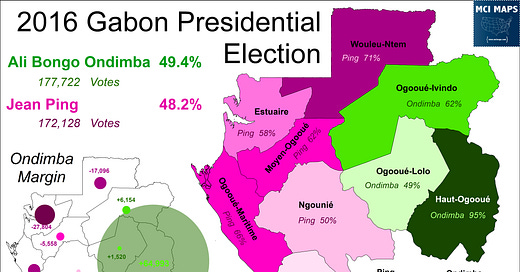



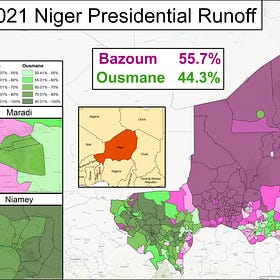

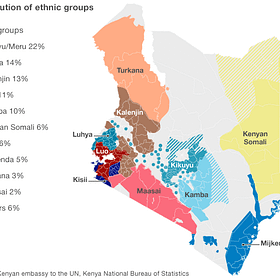


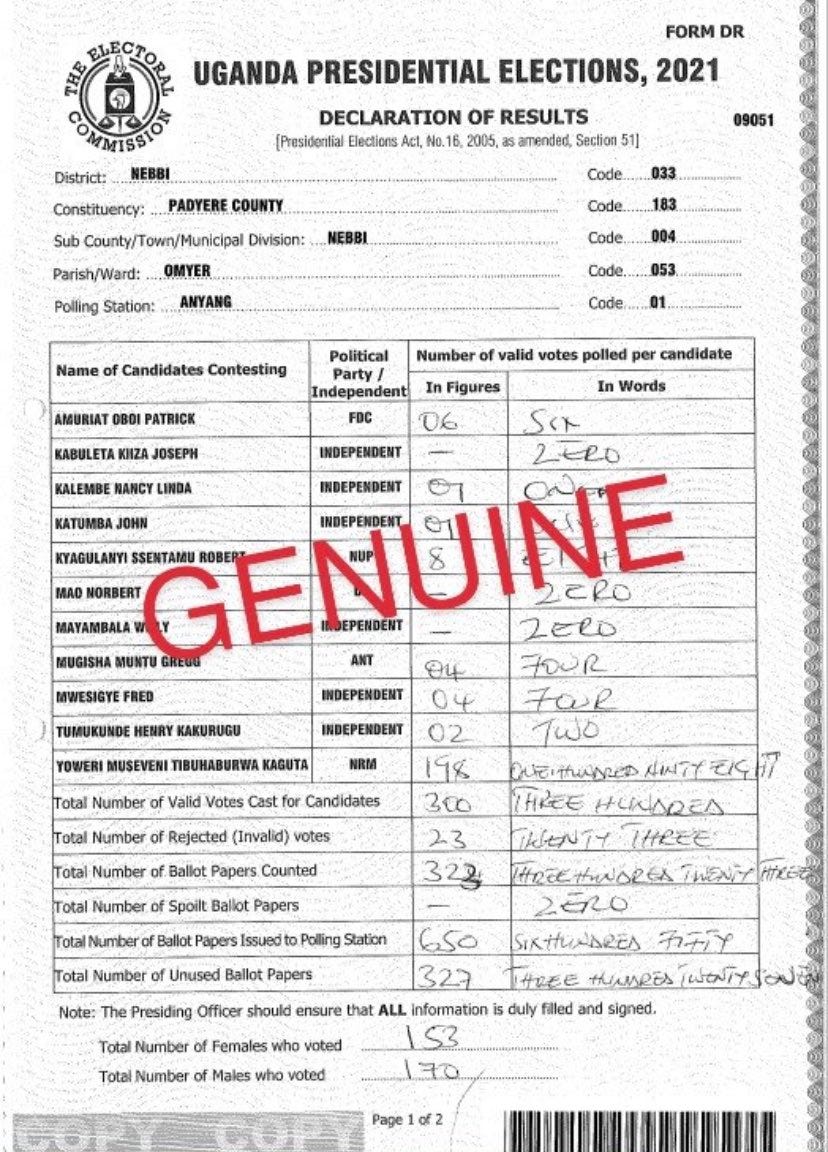
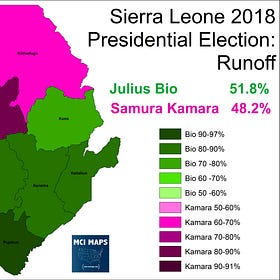
Thank you for shedding some light on this and honestly, I’ve been kind of disappointed in the western media, including the UK media, which is usually really on top of this sort of stuff about not only these specific issues in Africa but also the general trend continuing Russian influence in the developing world, not just in election interference but in media manipulation which is complicating attitudes and the ability for the international community to unite against Russian aggression. The Economist has done a good job but otherwise it’s really been glossed over. The Russians have been able to successfully manipulate public opinion in Africa, the Middle East and large parts of Asia against the west by using pirate, gold troughs and absolute lies. It’s a major threat to the international order, and one which needs to be pushed back upon much more aggressively in my opinion.